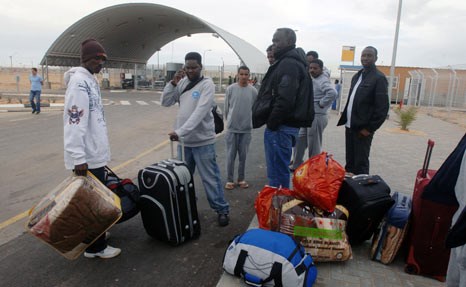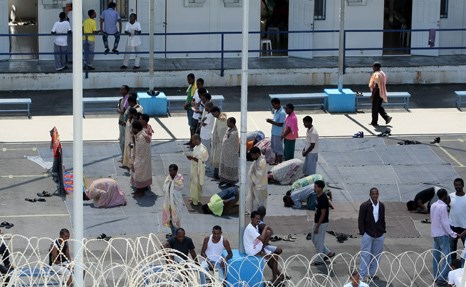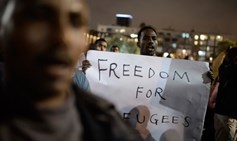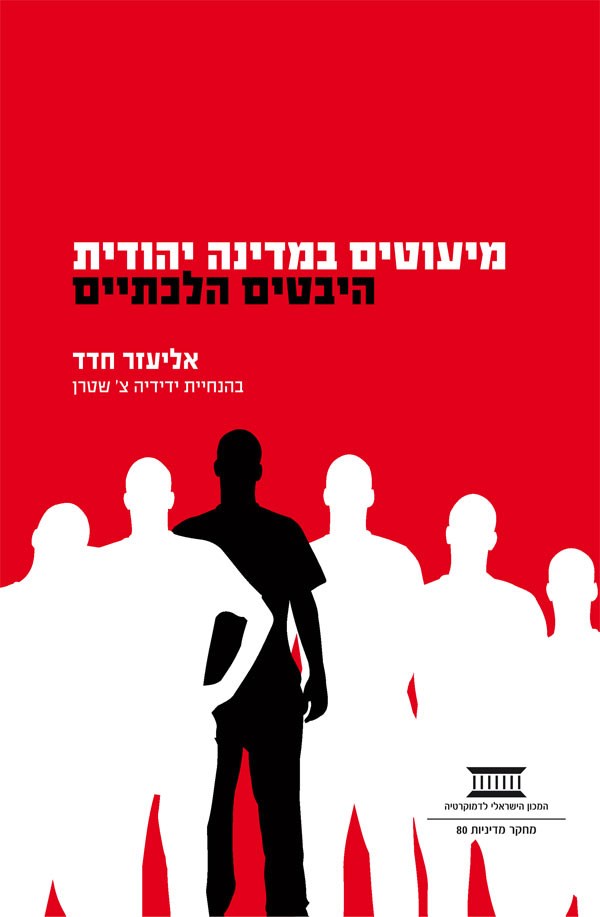

Publications Regarding refugees
Articles

Between ‘Voluntary’ Departure to an Undisclosed Third State and Indefinite Detention
Written By: Prof. Reuven (Ruvi) Ziegler
Israel refuses to officially disclose the identity of the states to which relocation takes place.

In the land of hidden legislative aims: HCJ 8665/14 (detention of asylum-seekers in Israel- Round 3)
Written By: Prof. Reuven (Ruvi) Ziegler
IDI researcher Dr. Ruvi Ziegler appraises the judgment of the Israeli Supreme Court in the third round of constitutional challenges to legislation authorizing detention of asylum-seekers in Israel. He critiques the judicial assessment of explicit and hidden legislative objectives, the role of international refugee law in the decision, and the normative question of irregular entry of asylum-seekers, and highlights legal challenges concerning the removal of asylum-seekers from Israel to third states.

High Time for a Fair Israeli Asylum Regime
Written By: Prof. Reuven (Ruvi) Ziegler
As World Refugee Day approaches, Dr. Ruvi Ziegler argues that it is high time for Israel to adopt a fair asylum policy that would mitigate the predicament of Eritrean and Sudanese nationals.

Detention of African Asylum Seekers in Israel: Welcome to Round Three
Written By: Prof. Reuven (Ruvi) Ziegler
On December 8, 2014, just before the Knesset dissolved itself to prepare for early elections, it enacted the Law for Prevention of Infiltration and Ensuring the Departure of Infiltrators from Israel. IDI's Dr. Reuven (Ruvi) Ziegler reviews this development.

Second Strike and You Are (Finally) Out? The Quashing of the Prevention of Infiltration Law (Amendment No. 4)
Written By: Prof. Reuven (Ruvi) Ziegler
IDI Researcher Dr. Reuven (Ruvi) Ziegler presents a brief overview of the Israeli High Court of Justice's decision to strike down Amendment No. 4 of the Prevention of Infiltration Law, and explores several themes that may be of comparative constitutional interest.

The Prevention of Infiltration Act in the Supreme Court: Round Two
Written By: Prof. Reuven (Ruvi) Ziegler
IDI researcher Dr. Reuven (Ruvi) Ziegler explains why he believes the Supreme Court should overturn Amendment No. 4 of the Prevention of Infiltration Act just as it invalidated its predecessor.

What Can We Learn about Israeli Policy Making from the Supreme Court's Ruling on the Anti-Infiltration Law?
Written By: Dr. Talya Steiner
Attorney Talya Steiner warns that a Supreme Court's judgment that struck down an amendment of Israel's anti-infiltration law as unconstitutional points to significant flaws in Israel's process of policy-making.

Quashing Legislation Mandating Lengthy Detention of Asylum-Seekers
Written By: Prof. Reuven (Ruvi) Ziegler
Dr. Reuven (Ruvi) Ziegler shares observations on the decision of the Israeli Supreme Court that an amendment of the Prevention of Infiltration Law that mandated lengthy detention of asylum seekers is unconstitutional.

Asylum Seekers in Israel: A Snapshot
Written By: Prof. Reuven (Ruvi) Ziegler
On the occasion of International Migrants Day and an IDI roundtable on Israeli immigration policy, IDI researcher Adv. Reuven (Ruvi) Ziegler provides an overview of the treatment of African asylum seekers who have crossed into Israel via its southern border.

Trapped between the Fences
Written By: Prof. Reuven (Ruvi) Ziegler
IDI researcher Attorney Reuven (Ruvi) Ziegler argues that the response of the Israeli government to the plight of 20 Eritrean asylum seekers trapped between the fences of the Israeli-Egyptian border tests Israel's adherence to rulings of its own Supreme Court.

The New Amendment to the ‘Prevention of Infiltration’ Act: Defining Asylum-Seekers as Criminals
Written By: Prof. Reuven (Ruvi) Ziegler
On January 10, 2012 an amendment to the Prevention of Infiltration Act passed its second and third reading in the Knesset. In passing this act, the government—and the Knesset—chose to walk down a path that is incompatible with the protection of human freedom that is embedded in Israeli constitutional law and that is incompatible with Israel’s obligations under international refugee conventions. Below is a condensed version of an article on this matter that was written by Adv. Reuven (Ruvi) Ziegler for the IDI Hebrew website.

A Matter of Definition: On ‘Infiltrators’ and ‘Asylum Seekers’ in Israel
Written By: Prof. Reuven (Ruvi) Ziegler
In this article, IDI Researcher Adv. Reuven (Ruvi) Ziegler surveys Israel's regulations regarding refugees and asylum seekers and points to three areas—eligibility for asylum, the rights of asylum seekers, and detention—in which they are incompatible with the UN refugee convention.

